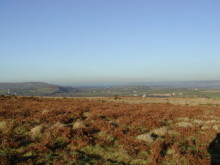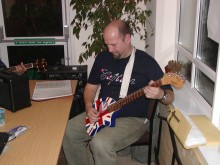 In the early 2000s, I saw how different addiction treatment services operated in Wales. Here, I outline the approach adopted by the government-led addiction treatment system, which was heavily influenced by the 1998 UK Drug Strategy, and describe some of its shortcomings. I discuss what I saw at West Glamorgan Council on Alcohol and Drug Abuse (WGCADA) in Swansea in relation to ideas related to self-healing and the therapeutic process. (2,962 words)
In the early 2000s, I saw how different addiction treatment services operated in Wales. Here, I outline the approach adopted by the government-led addiction treatment system, which was heavily influenced by the 1998 UK Drug Strategy, and describe some of its shortcomings. I discuss what I saw at West Glamorgan Council on Alcohol and Drug Abuse (WGCADA) in Swansea in relation to ideas related to self-healing and the therapeutic process. (2,962 words)
In the last six parts of My Journey I have described various community activities in which I was engaged, both at a local and national level, in the few years after I left the neuroscience field in the year 2000. In this chapter, I reflect on various aspects of these activities and on the environment in which I now worked.
1. Early Reflections on Addiction Treatment
‘Step by step that change is happening and Britain is becoming a better place to live in. But it could be so much better if we could break once and for all the vicious cycle of drugs and crime which wrecks lives and threatens communities.’ Prime Minister Tony Blair, 1998
What was happening in the addiction treatment field was heavily influenced by the UK government’s 1998 drugs strategy, Tackling Drugs to Build a Better Britain, which classed the drug problem as a criminal justice issue, rather than a health/social issue. The UK Government’s priority for drug treatment was to provide methadone, a long-lasting heroin substitute, to people who were addicted to heroin, believing that this would reduce the crime that they perceived was caused by heroin addicts.

 Three stories from the treatment agency West Glamorgan Council on Alcohol and Drug Abuse (WGCADA) in Swansea describe a medical student’s experiences during a day with community support worker Dave Watkins; a client’s experiences whilst interacting with Arrest Referral worker Becky Hancock, and a client’s experiences in the Primary treatment programme at WGCADA. (4,644 words)
Three stories from the treatment agency West Glamorgan Council on Alcohol and Drug Abuse (WGCADA) in Swansea describe a medical student’s experiences during a day with community support worker Dave Watkins; a client’s experiences whilst interacting with Arrest Referral worker Becky Hancock, and a client’s experiences in the Primary treatment programme at WGCADA. (4,644 words)

 Whilst on Gower, I caught up with my old best schoolmate in Melton Mowbray, Jeff Zorko, along with this wife Marian and daughter Rosie. Jeff and I spent a number of years working in jobs in different places around the world, only to find we both ended up living on Gower. They have known my three youngest children since each of them were born. Jeff became an invaluable Trustee on our charity Wired International Ltd, which funded Wired In activities. I am very grateful for the charity work he did then and the long-lasting friendship I have had with him and his family.
Whilst on Gower, I caught up with my old best schoolmate in Melton Mowbray, Jeff Zorko, along with this wife Marian and daughter Rosie. Jeff and I spent a number of years working in jobs in different places around the world, only to find we both ended up living on Gower. They have known my three youngest children since each of them were born. Jeff became an invaluable Trustee on our charity Wired International Ltd, which funded Wired In activities. I am very grateful for the charity work he did then and the long-lasting friendship I have had with him and his family. I left Ash Whitney’s house in Cilfrew, and headed to Gower (a peninsula just west of Swansea) where I had rented a house in Llangennith for my two boys (Ben and Sam) and myself for four nights. Llangennith is a village on the west coast of Gower which is close to Rhossili Beach, a beautiful surfing beach. I spent my first year renting a house in the village when I took up a position in the Psychology Department at the University of Wales, Swansea in 1992. I ended up living on Gower for 14 years and had such a great time there. I consider Gower to be my spiritual home.
I left Ash Whitney’s house in Cilfrew, and headed to Gower (a peninsula just west of Swansea) where I had rented a house in Llangennith for my two boys (Ben and Sam) and myself for four nights. Llangennith is a village on the west coast of Gower which is close to Rhossili Beach, a beautiful surfing beach. I spent my first year renting a house in the village when I took up a position in the Psychology Department at the University of Wales, Swansea in 1992. I ended up living on Gower for 14 years and had such a great time there. I consider Gower to be my spiritual home. Huseyin Djemil from the UK has this week launched a new podcast focused on recovery from addiction, which he describes as such:
Huseyin Djemil from the UK has this week launched a new podcast focused on recovery from addiction, which he describes as such:

 In my
In my 





